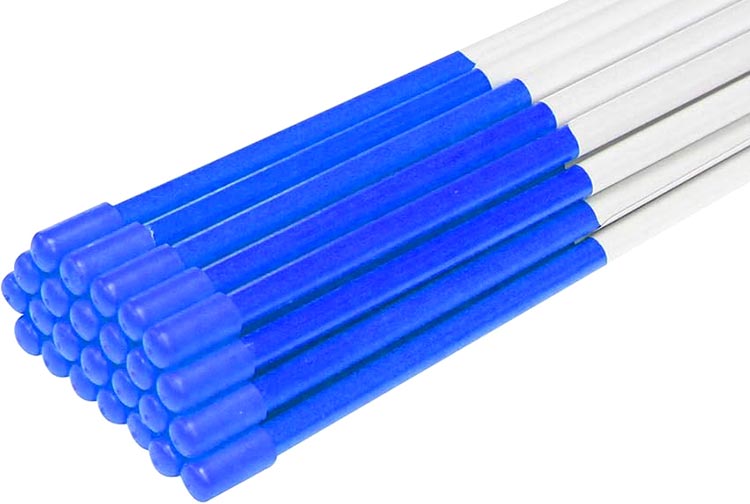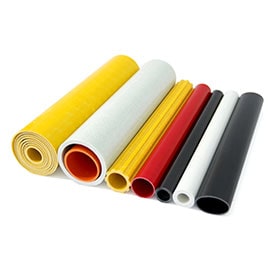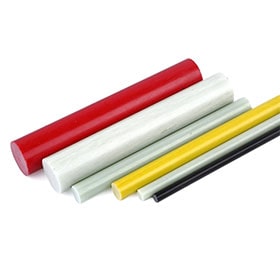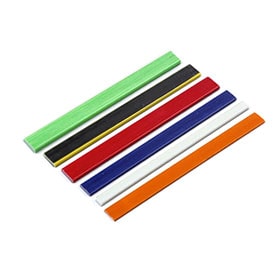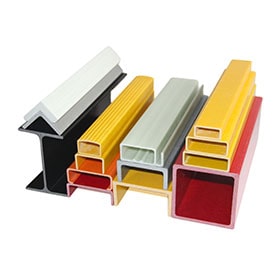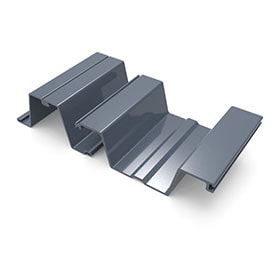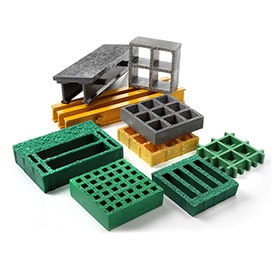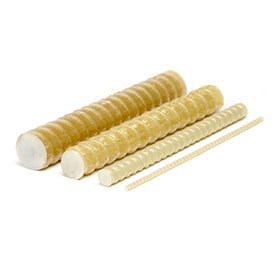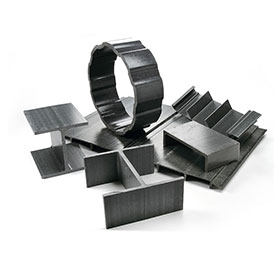Fiberglass Driveway Markers vs. Plastic: Which is Better for Your Driveway?
When winter arrives, marking your driveway becomes essential for safe navigation and preventing damage from snowplows. Driveway markers, also known as snow stakes, guide drivers and snow removal equipment, ensuring they stay on track. Two popular materials for these markers are fiberglass and plastic. This article provides a detailed comparison of fiberglass and plastic driveway markers to help you determine which is the better choice for your driveway.
Fiberglass Driveway Markers:
Fiberglass driveway markers are made from fiberglass reinforced plastic (FRP). This material combines glass fibers and resin, creating a strong, flexible, and durable stake.
Advantages of Fiberglass Driveway Markers:
Superior Durability: Fiberglass is exceptionally strong and resistant to bending, breaking, and splintering, even under heavy snow loads or impacts from snowplows.
Excellent Weather Resistance: Fiberglass is impervious to rust, corrosion, and rot, making it ideal for harsh winter conditions, including snow, ice, salt, and extreme temperature fluctuations.
High Flexibility: Fiberglass stakes are flexible enough to bend under pressure without breaking, minimizing damage to both the markers and snow removal equipment.
Long Lifespan: Due to their durability and weather resistance, fiberglass markers typically last for many years, making them a cost-effective long-term investment.
Good Visibility: Most fiberglass markers come with reflective tape or coatings, providing excellent visibility in low-light conditions and during snowstorms.
Disadvantages of Fiberglass Driveway Markers:
Higher Initial Cost: Fiberglass markers generally cost more upfront than plastic markers.
Potential for Fiber Exposure (Rare): In rare cases of severe damage, fiberglass can splinter, potentially exposing sharp fibers. However, this is uncommon with quality markers.
Plastic Driveway Markers:
Plastic driveway markers are made from various types of plastic, such as polyethylene or polypropylene.
Advantages of Plastic Driveway Markers:
Lower Initial Cost: Plastic markers are typically more affordable than fiberglass markers.
Lightweight: Plastic stakes are lightweight and easy to handle and install.
Variety of Colors and Styles: Plastic markers are available in a wide range of colors and styles, allowing for some customization.
Disadvantages of Plastic Driveway Markers:
Lower Durability: Plastic is less durable than fiberglass and is more susceptible to breaking, bending, and cracking, especially in cold temperatures and under heavy snow loads.
Reduced Weather Resistance: Some plastics can become brittle and crack in extreme cold or degrade from prolonged exposure to sunlight and UV radiation.
Shorter Lifespan: Due to their lower durability, plastic markers typically need to be replaced more frequently than fiberglass markers.
Lower Visibility (Often): While many plastic markers have reflective tape, the reflectivity may not be as effective or long-lasting as on fiberglass markers. They can also become obscured more easily by snow sticking to the plastic.
Comparison Table:
| Feature | Fiberglass Driveway Markers | Plastic Driveway Markers |
| Durability | High | Low to Medium |
| Weather Resistance | Excellent | Fair to Good |
| Flexibility | High | Medium to Low |
| Lifespan | Long | Short to Medium |
| Visibility | Excellent | Good (Varies) |
| Initial Cost | Higher | Lower |
| Installation | Easy | Easy |
Which is Better for Your Driveway?
The best choice for your driveway depends on your specific needs and budget.
Choose Fiberglass if:
You live in an area with heavy snowfall or harsh winter conditions.
You want a durable and long-lasting solution.
You prioritize high visibility and safety.
You are willing to invest a little more upfront for long-term value.
Choose Plastic if:
You live in an area with mild winters and light snowfall.
You are on a tight budget and need a temporary solution.
You only need to mark your driveway for a short period.
Other Important Considerations:
Reflectivity: Regardless of the material, choose markers with high-quality reflective tape or coatings for maximum visibility.
Length: Select a length appropriate for your typical snow accumulation. Longer stakes are needed in areas with deep snow.
Installation: Install markers before the first snowfall and space them evenly along your driveway.
Conclusion:
While plastic driveway markers offer a lower initial cost, fiberglass driveway markers provide superior durability, weather resistance, and visibility. For most homeowners, especially those in areas with harsh winters, fiberglass markers represent a better long-term investment due to their longer lifespan and improved safety features. By considering your specific needs and priorities, you can make an informed decision and choose the best driveway markers for your property.
 +86 15303735673
+86 15303735673 Jessica@frpzs.com
Jessica@frpzs.com
 Technical Data
Technical Data


